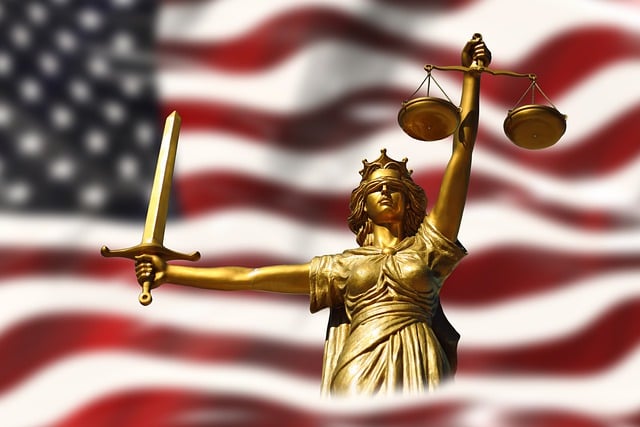Corporate crime investigations face complex challenges due to intricate financial networks and legal loopholes, with prosecutorial discretion playing a pivotal role in shaping case outcomes. This discretionary power allows prosecutors to weigh evidence, victim impact, and societal interests when deciding whether to pursue charges. The nature of corporate structures further complicates matters, as individuals may face criminal liability alongside corporate penalties. Skilled prosecutors balance justice and strategic considerations like plea bargains to achieve favorable verdicts, deter future crimes, and maintain public trust in the legal system. Transparency, accountability, and effective cooperation between regulatory bodies and law enforcement are crucial for fairness in high-stakes cases.
Corporate Crime Investigations: Navigating a Complex Landscape
In today’s global business environment, corporate crime investigations have become increasingly intricate. This article delves into the multifaceted world of these inquiries, focusing on key aspects shaping outcomes. We explore how prosecutorial discretion significantly impacts case decisions, while also examining influences that can sway outcomes. Furthermore, we analyze when discretion becomes a double-edged sword and propose strategies to enhance transparency and accountability in corporate crime prosecutions, with a special emphasis on the prosecutorial discretion impact on case outcomes.
- Understanding Corporate Crime Investigations: A Complex Landscape
- The Role of Prosecutorial Discretion in Decision-Making
- Factors Influencing Case Outcomes: A Comprehensive View
- When Discretion Becomes a Double-Edged Sword
- Strategies for Enhancing Transparency and Accountability
Understanding Corporate Crime Investigations: A Complex Landscape
Corporate crime investigations are a complex landscape where law enforcement and prosecutors navigate intricate financial networks and legal loopholes. These cases often involve white-collar offenses like fraud, money laundering, and embezzlement, which can be challenging to prosecute due to their subtle nature and lack of physical evidence. The impact of prosecutorial discretion on case outcomes is significant; the decisions made by prosecutors can determine whether a case proceeds to indictment or is resolved through alternative means.
Understanding the interplay between legal strategies, regulatory frameworks, and prosecutorial trends is crucial for both investigators and those sought as witnesses or defendants. For his clients, navigating this landscape requires careful consideration of their rights, potential consequences, and the likelihood of a successful outcome. Whether through plea bargains or strategic use of evidence, avoiding indictment becomes a key objective, especially in high-stakes cases where jury trials could have severe repercussions.
The Role of Prosecutorial Discretion in Decision-Making
The role of prosecutorial discretion is a critical aspect of corporate crime investigations, with significant implications on case outcomes. Prosecutors hold immense power in deciding whether to pursue charges and how aggressively to prosecute, which can greatly influence the trajectory of legal proceedings. This discretion allows for a nuanced approach, taking into account various factors such as the strength of evidence, potential impact on victims, and societal interests. When used appropriately, prosecutorial discretion can enhance the integrity of the justice system by ensuring resources are allocated effectively to address the most serious offenses.
In the context of white-collar and economic crimes, where cases often involve complex financial transactions and intricate legal arguments, prosecutorial discretion plays a pivotal role in winning challenging defense verdicts. Skilled prosecutors, for his clients, must balance the pursuit of justice with strategic considerations, such as the potential for plea bargains or alternative dispute resolution. This discretion can lead to more favorable outcomes, not just for individual defendants but also for society at large, by deterring future crimes and promoting a fair legal system.
Factors Influencing Case Outcomes: A Comprehensive View
The outcome of corporate crime investigations is influenced by a myriad of factors, with one of the most significant being prosecutorial discretion. This power allows prosecutors to decide whether or not to pursue charges against individuals and organizations involved in illegal activities. The decision-making process involves a careful consideration of evidence strength, legal precedents, potential public interest, and the likelihood of successful prosecution. These choices can lead to varying outcomes, such as avoiding indictment for less severe offenses or seeking justice through trials that may result in substantial penalties.
Additionally, the nature of the corporate structure itself plays a role. Distinguishing between corporate and individual clients is essential during investigations. While corporations might face fines or legal sanctions, individuals within the organization could be held criminally liable. This distinction often shapes strategies and can lead to complete dismissal of all charges if the evidence fails to establish personal involvement among key decision-makers.
When Discretion Becomes a Double-Edged Sword
In the realm of corporate crime investigations, prosecutorial discretion plays a pivotal role in shaping case outcomes. This power, while crucial for ensuring fairness and resources are allocated efficiently, can also be a double-edged sword. The impact of prosecutorial decisions extends far beyond individual cases, influencing public perception of justice and the overall effectiveness of enforcement across the country.
Prosecutors must navigate a delicate balance when dealing with corporate and individual clients alike. Their discretion in deciding whether to pursue charges or negotiate plea deals can significantly affect the course of an investigation. This power is particularly significant across all stages of the investigative and enforcement process, from gathering evidence to resolving the case. However, the potential for abuse exists, as decisions driven by personal biases or external pressures could undermine the integrity of the legal system and cast doubt on the pursuit of justice.
Strategies for Enhancing Transparency and Accountability
In the realm of corporate crime investigations, enhancing transparency and accountability is paramount. One effective strategy involves meticulous documentation and record-keeping within organizations. By implementing robust internal controls and regular audits, companies can ensure that illicit activities are detected and reported promptly. Additionally, fostering a culture of ethical conduct and providing comprehensive training to employees can significantly deter potential wrongdoings.
The role of prosecutorial discretion in shaping case outcomes cannot be overlooked, especially in high-stakes cases involving corporate and individual clients. Balancing the pursuit of justice with the need for due process, prosecutorial discretion plays a crucial part in determining the trajectory of criminal proceedings. This, coupled with effective cooperation between regulatory bodies and law enforcement, ensures that accountability is maintained while preserving fairness throughout the legal process, particularly during jury trials.
Corporate crime investigations present a complex web of legal, ethical, and practical considerations. As discussed, prosecutorial discretion significantly influences case outcomes, impacting the pursuit of justice. Understanding the factors at play, including the interplay of discretion and accountability measures, is vital for navigating this intricate landscape. By adopting strategies that enhance transparency, investigators can ensure fairness and maintain public trust, thereby improving the overall impact of corporate crime investigations and the subsequent outcomes.






